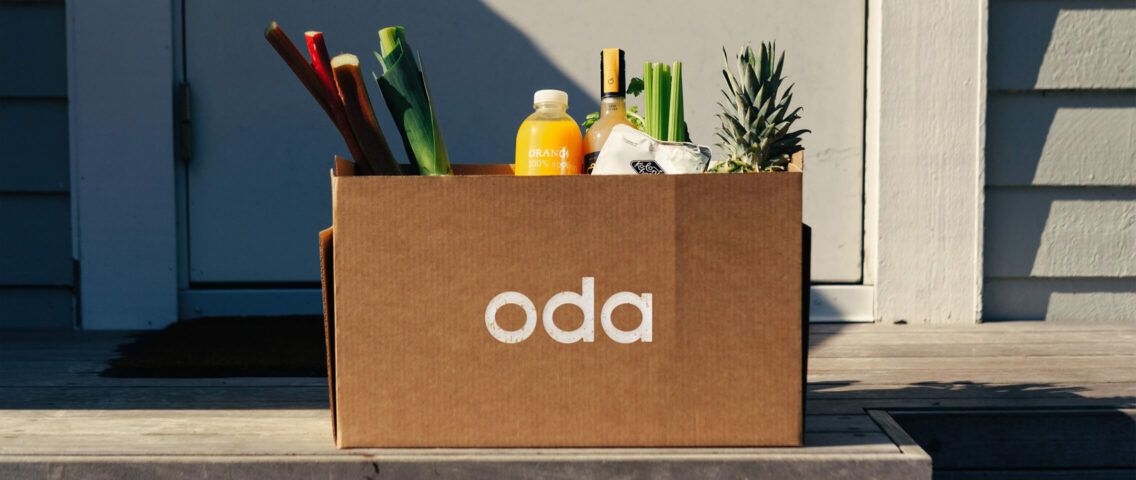This case study refers to a project done with Kolonial.no which has since changed name to Oda.
Background & Targets
Kolonial.no is the largest online fresh food retailer in Norway and the fastest growing company in the sector in the Nordic region. It offers a wide selection of groceries, which are either delivered to customers home address or to a pick-up point.
Kolonial.no had developed its own forecasting and replenishment system. The tool had stood the business in good position as it grew but started to struggle as the complexity of its operations increased. The company was concerned that out-of-stock and spoilage levels were too high. As a young, environmentally aware business, it was determined to minimize waste. It also wanted to improve the life cycle management of products and cut the amount of time spent on ordering and restocking.
The retailer set out to find a comprehensive solution that would give it a granular level of control over a very challenging business. The tool would need to be able to forecast for seasonal and promotional products as well. It also needed to offer batch level inventory management, outstanding visibility of incoming goods flow, and take space constraints into account in replenishment. The company chose RELEX because of its excellent track record with retailers’ online, offline and omnichannel operations.
As well as improving forecasting to boost availability, cut spoilage, achieve better transparency to optimize the incoming goods flow and restocking of its warehouse, together with RELEX Kolonial.no has been able to give its people better purchasing tools and make it easier for the purchasing and promotions teams to work closely together. The ultimate goal was to ensure customers receive fresher fruits and vegetables, and would therefore be more satisfied and loyal.
“Online fresh food shoppers are more demanding of the quality of items picked on their behalf than they are of those they pick themselves,” says Mattias Andersson, Kolonial.no’s Supply Chain Manager. “But tough customer expectations drive us to be better.”
More Granular Forecasting
The project began in spring 2017. The implementation, as is RELEX’s style, was quick with an agile approach, with processes being continuously optimized during the set-up phase. In September, after just three months, roll out began.
Forecasting has become more granular, it’s now at day-level. Promotions and events are taken into account as are seasonal demand fluctuations associated with holiday periods, such as Christmas, Easter, and summer. Promotions forecasting makes use of regression modelling which in turn makes use of RELEX’s machine learning capabilities, monitored and corrected where necessary by the Kolonial.no team.
The company has introduced dynamic safety stocks that are set daily to reflect demand during that 24-hour window. The role of the purchasing and replenishment team has substantially evolved. A substantial amount of time has been saved through automating routine ordering and replenishment and that has allowed staff to re-focus on increasing the quality of the ordering, not least by collaborating closely with suppliers, with whom they routinely share forecasts.
With RELEX Kolonial.no is now able to automatically include shelf capacities as an input in the order proposal calculations, adjusting the orders to fit into the shelves. This has reduced the time spent on receiving goods and stocking them to a picking area, enabling a smoother operation at the warehouse.
We now have a much greater transparency of data and our workload.
Simon Svensson, Purchaser, Kolonial.no
“We now have a much greater transparency of data and our workload,” says Simon Svensson, Purchaser at Kolonial.no. “Through better transparency, incoming goods flows have become far more stable and that’s made planning for deliveries far easier. It’s now also a lot easier to plan warehouse workforce requirements across the week.”
The Results
Kolonial.no’s sales have increased significantly when comparing to the first half of 2017 with the first half of 2018 and yet spoiled products proportion of sales is down by 49% during the same period! At the same time availability levels have been maintained, so dramatic growth and waste reduction has not increased stock-outs. Meanwhile inventory turnover is up by 25%.
“Being able to plan and forecast with a particular eye on spoilage has helped us a lot,” Svensson says. “By using RELEX we were able to see what was in danger of becoming unsellable before it’s too late so now we can take steps to minimize food waste.”
Kolonial.no set out to ensure that its forecasting, ordering and replenishment, and its detailed management of fresh goods, were all the equal of its customers’ high expectations. In almost no other area of retail is trust as important a factor as in online shopping for fresh food. Kolonial.no believes its adoption of RELEX has helped them to honor the trust its customers place in it.
